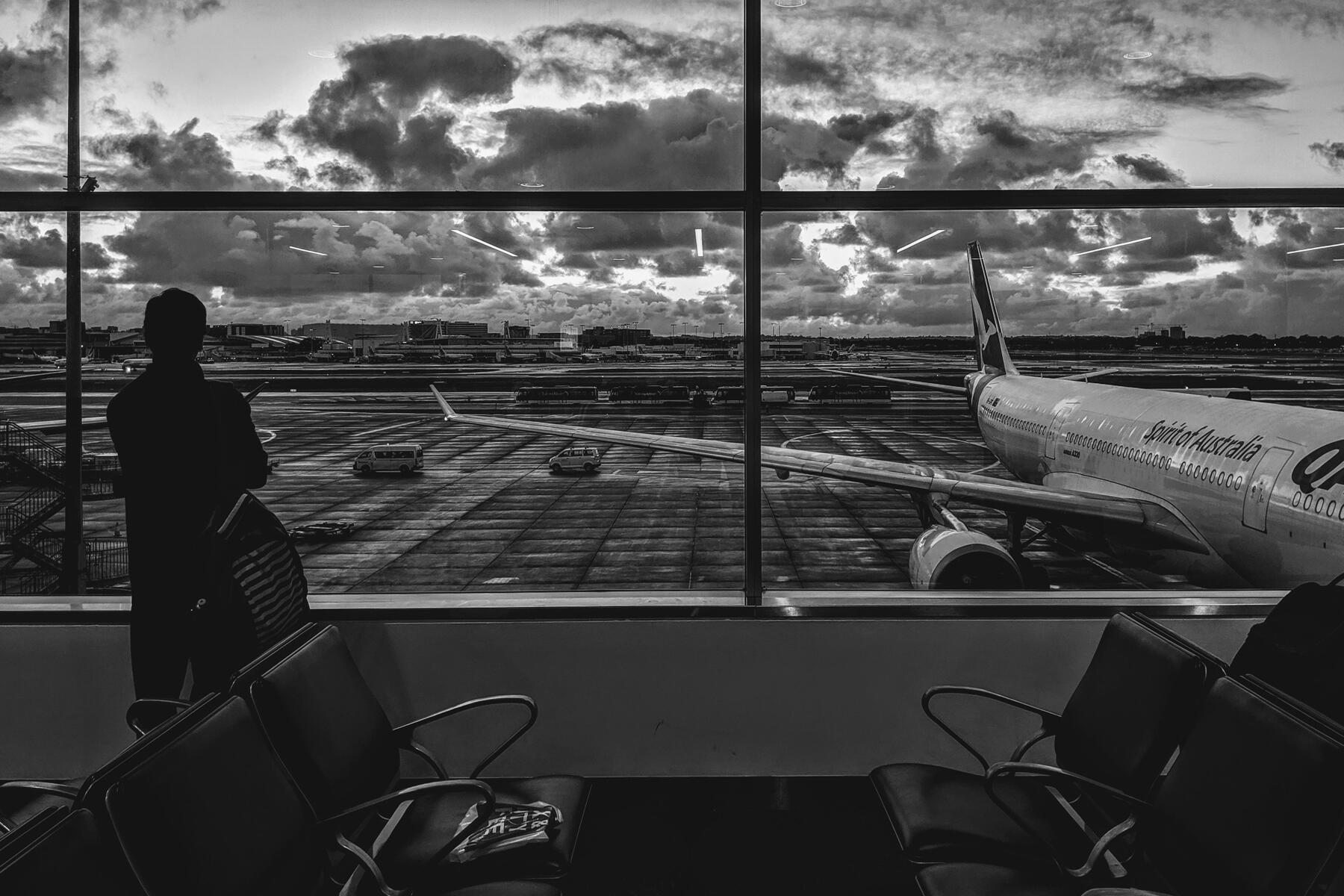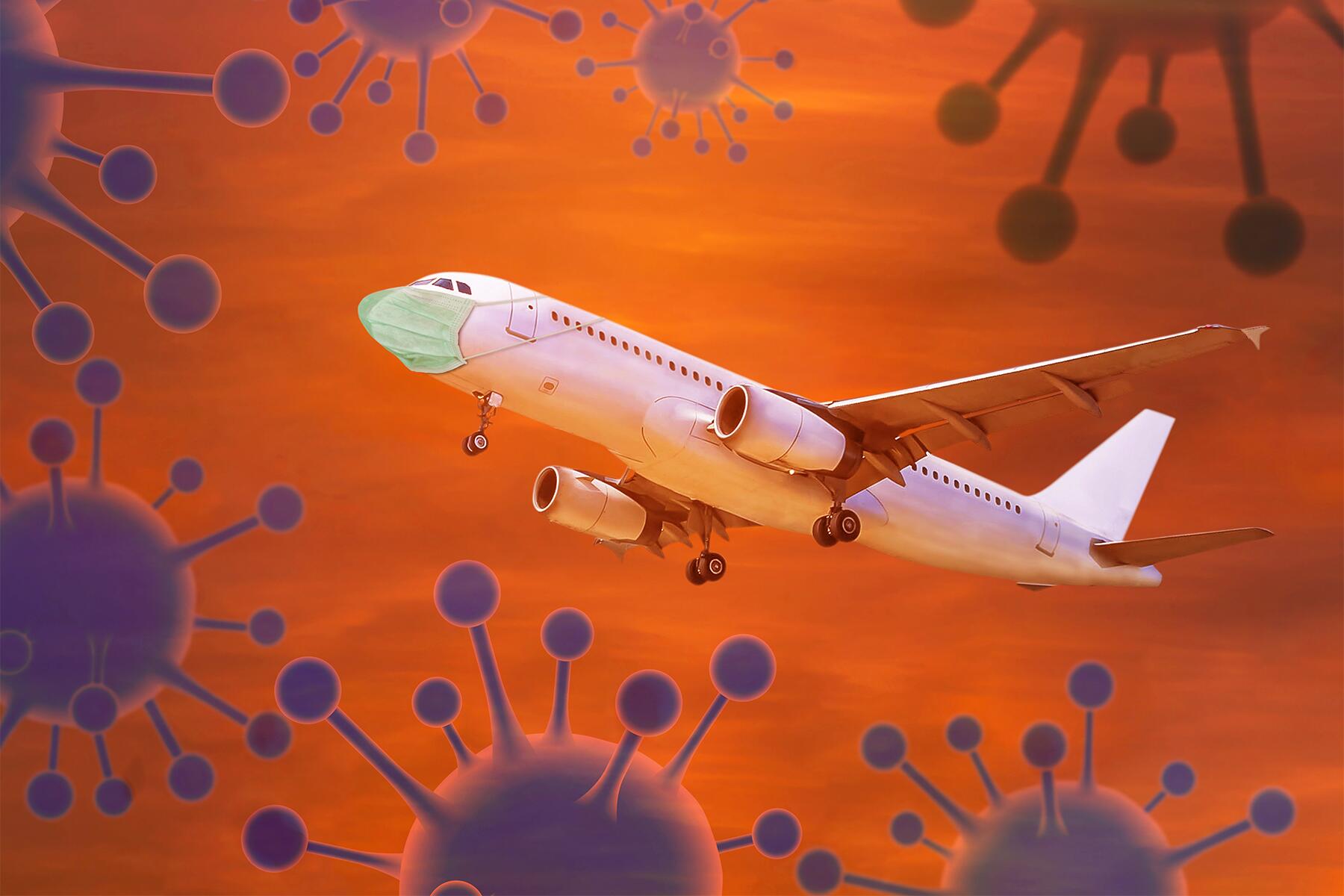As we wait for Elon Musk to transport us to the moon, this future-forward travel tech is more than just hype.
Traveling in 2021 and beyond is going to look a little different. While spontaneous, carefree adventures may be on hold for a while, technology has stepped in to make the overall traveling experience smoother and a lot more convenient. From autonomous vehicles and augmented reality guides, smart hotels, and high-tech gadgets, these are some forward-thinking innovations we hope to be embracing soon.
We’ll Get Around via Autonomous Vehicles
As we await self-driving cars (we’re looking at you Tesla), there’s other autonomous concepts brewing that’ll change the way we get about. The Autonomous Travel Suite by Aprilli Design Studio while still in the conceptual stage is an attractive proposition. The driverless mobile suite—think of it as a rental car and hotel room—designed for journeys between six to 10 hours will bring us from point to point in style and comfort with a sleeping area, workstation, and bathroom combined. Then there’s EHang’s eight-arm autonomous aerial vehicle that sits two and is designed for short city hops/tours of less than 21 miles. Since it has already done test flights in China and Europe, commercial flights can’t be too far off.
You’ll Pay Using Cryptocurrency
Crypto payments will soon be mainstream and this can only be a good thing. As cryptocurrencies (mainly Bitcoin, Ethereum, Bitcoin Cash, and Litecoin) get adopted by companies like PayPal—currently you can buy, sell and hold crypto using your PayPal app—more merchants will accept crypto-linked payments. Transactions are already executable by a QR code, typing in a Bitcoin address, or via a digital wallet like Coinbase so when this de-fi form of payment gets popularised, it’ll mean an end to hefty foreign ATM fees and annoying currency conversion calculations.
Recommended Fodor’s Video
You’ll Be Keeping Tabs on More Than Just the Weather
Adapting to post-pandemic travel will require research, likely a lot of it. Thankfully apps like Dragon Slayer help offload some information-heavy lifting. A subscription-based app ($9.99 per month, 14-day free trial), it accesses a traveler’s risk tolerance through a series of questions, while simultaneously awarding a SAFE-T (Smart Analytics For Educating Travelers) score to 50 U.S. states and 124 countries based on real-time data (trending COVID case counts, number of deaths, local unrest, etc.). Additionally, destination-specific information like quarantine requirements, group size limits, indoor dining status, and even ski pass reservations is updated daily so travelers don’t land blindsided and can spend less time on Google and more time getting into a vacation state of mine.
Read also: These Are the Must-Have Apps for All Your Travel Needs
Cleanliness Will Be No Longer Be a Nice to Have
Now, more than ever, travelers will demand a high level of cleanliness to ensure their safety while away from home. Expect to see autonomous robots at airports doing regular cleaning of public spaces. Hotels, too, are investing in UV-C light cleaning solutions and disinfecting chambers for high-touch items (e.g. key cards and remotes). Some, like tech-savvy Yotel Boston is extending robo-cleaning as a complimentary guest perk. Their Vi-YO-Let robot disinfects the air and surfaces via an integrated UVD light hospital-grade disinfection system, so it’s not just countertops and sinks that get zapped free of germs and microbes, but also the surrounding air.
Your Face Will Be Your Boarding Pass
Start saving those paper boarding passes because they’re about to become a nostalgic travel souvenir. Pre-pandemic, the use of biometric technology was already becoming the norm rather than the exception. From hotels to airports, retina scanning, fingerprint access, and other biometric identifiers were being introduced for convenience and security reasons, and now it’s helping to reduce in-person contact. Alibaba’s Flyzoo hotel in Hangzhou uses facial recognition technology for self-registration, keycard collection, and elevator access, so no interaction is required at check-in. At select U.S. airports, pre-pandemic, boarding passes have been done away with in favor of a biometric facial confirmation of a passenger’s identity and travel status, and this looks to become a nationwide standard soon.
Virtual Travel Will Replace Armchair Travel
For most, 2020 was the year of no travel unless we did it virtually. While life in VR is no match for the actual world, as travel re-starts, smart travelers will turn to virtual reality tours for research and as a substitute for the real thing. Especially applicable for remote locations, it’s hard to beat the immersive experience of flying over the infamous monolith of Uluru (thanks, Qantas), an encounter undeniably enhanced in the VR dimension. Other 3D options to explore? If you’ve got an Oculus, strap on and go skiing in Georgia, explore the temples of Luxor or just sit back and watch the sunset in San Francisco.
Augmented Reality Will Elevate the Travel Experience
Picture this: Getting a close-up view of the Colosseum, so close you’re able to spot one of the 36 trap doors that hide in plain sight. No, it’s not an exclusive insider tour, it’s thanks to the technology that already lives in your phone. Just as you play Pokemon Go or visualize a piece of IKEA furniture in your home, Apple Maps has an Augmented Reality Flyover Mode with close-up views of over 300 cities. Apple aside, AR apps like WallaMe, ViewRanger, StarChart, and Wikitude World Browser let you explore your dream destination by offering interactive elements—some tied to a physical location, other’s location independent—so you can do indulge your wanderlust wherever you are.
The Internet of Things (IoT) Will Be Everyone’s Best Travel Buddy
At home, Alexa queues up your favorite playlist, tells you the jokes, and dispenses cooking tips. On the road, hotels, where Alexa is available (look for rooms that tout Alexa for Hospitality), can help you turn on/off lights, order from the hotel restaurant, and reliably wake you up every morning. Other smart tech applications that’ll improve your travel experience, using your phone as a secure digital hotel room key, voice control commands to adjust pre-programmed devices, and smart mirrors that can detect your heart rate.
Cashless Tips Will Become the Standard
As we move towards a cashless society, gratuities are going the digital route. Rather than having to scramble together a 25% tip, digital tipping services like YouTip enable customers to simply scan and tip via a specific QR code that can be placed anywhere: on employee badges, cash registers, or even a valet stand. And because it’s linked to specified bank accounts, 100% of the tip (or a proportion of pooled tips) goes to the intended recipient. Voice tipping using in-room Amazon Alexa devices will also become a thing, so housekeeping never misses out on a gratuity.
The AI Concierge Will Do All Your Bidding
While the all-knowing concierge professional is irreplaceable, having an automated option to solve simple requests at any time of the day is extremely convenient. The AI-powered chatbot may not pick up on the nuances of an old-fashioned romantic restaurant versus a chic, intimate eatery, it can take over on-demand requests like area recommendations, amenities top-ups, and late check-out calls, all without you having to pick up the phone.
Expect a Health Screening Upon Arrival
From thermal screening cameras to handheld thermometers, rapid COVID tests, and vital signs (temperature, blood oxygen levels, heart rate), travelers should expect to be screened upon arrival to prevent passing on viral infections. At Hong Kong International Airport, they’re taking additional precautions with the installation of CleanTech sanitization pods, which conducts full-body disinfection in 40 seconds using a UV-based disinfection method. While currently still in test mode, expect this to be introduced this year.






There is a slight blunder on slide 7. Hallstatt is in Austria, not Australia!